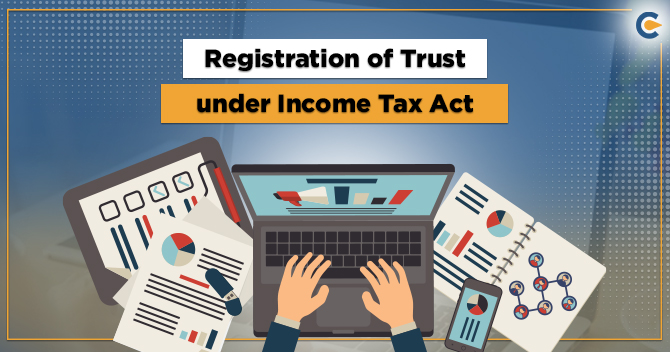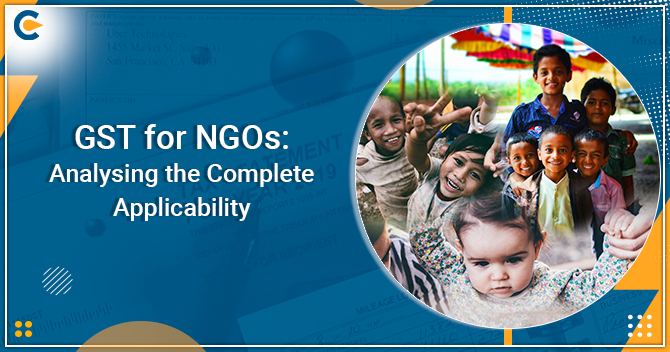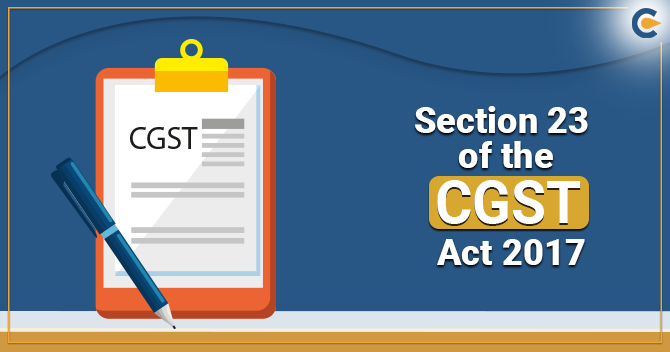Trusts are abided by the rules prescribed in Section 8, which claims the tax benefits as discussed in Sec 11 and 12 of the Income Tax Act, must have a valid 12A registration to be able to do so. Sec 12AA dealing with the procedure for registration of a charitable trust is not to be applicable; instead, a new section 12AB has inserted prescribing the procedure for new registration. In this post, we will put some light on Registration of Trust under Income Tax Act.
Current Scenario for Registration of Trust
All the current charitable and religious institutions (including NGOs) which are registered or permitted under Section 12A, 12AA, 10(23C), 80G are compulsory to switch to section 12AB for new registration. The Government aims to create a National Register of all charitable and religious institutions, and the IT Department[1] will issue an electronically generated Unique Registration Number (URN) to all charitable and religious institutions.
In case of the new trust registration, the Principal Commissioner or the Commissioner shall grant a provisional certificate of registration within one month from the end of the month in which the application for provisional registration is made.
Read our article:Audit of Charitable trust or NGO under section 12A (b)
Amended provision of Section 12AB for Registration of Trust
The amended provisions of sec-12AB for Registration of Trusttabulated are as follows-
| Application made u/s- 12A(1)(ac) | Procedure for fresh registration under Section 12AB | Remarks |
| (i) | Registration granted for five years [Sec-12AB(1)(a)] | No documents will be called, or query will be made for the grant of registration. The application should be made in 3 months from the end of the month. |
| (ii)/(iii)/ (iv)/(v) | Registration may be allowed for five years if PCIT or CIT is satisfied with the genuineness of actions and compliance under any other laws of the trust. Registration may be revoked after providing a reasonable opportunity of being heard to the trust. [Section 12AB(1)(b)(ii)] | The PCIT or CIT shall have the powers to call for documents from the trust to make inquiries before renewal of the registration after five years, and within six months from the month end in which the application is made. Further, before cancelling the registration, the trust shall be allowed to present its case. |
| (vi) | Provisional registration will be allowed for 3 years from the assessment year of which the registration is brought. [Sec-12AB(1)(c)] | It resembles that in this case no documents will be called or inquiry will be made for granting the provisional registration, in one month from the end of the month in which application is made. |
- Granting of registration by the Principal Commissioner after receipt of an application under the conditions specified in section 12A (1) (i) to (vi).
- Time limit to grant the registration by the Principal Commissioner or the Commissioner after the receipt of an application under the circumstances specified in sec 12A(1)(i) to (vi).
- Any registration granted under section 12AB(1)(a) or u/s 12AB(1)(b) empowers the Principal Commissioner or the Commissioner to revoke the registration of a Trust or institution in the new sec 12AB is on the same line of the existing section 12AA.
Procedure for Registration of Trust: New Approach
The process for registration of trust includes the following-
Application Form 10 A has to be filed and submitted along with the relevant documents to the appropriate authority.
Documents required to be provided along with the application Form for Registration of Trust
The documents which are required to be provided along with Form 10A are as follows-
- When trust is formed under an instrument, self-certified copy of the instrument creating the trust;
- When trust is formed under an instrument, self-certified copy of the document evidencing the creation of the trust;
- A self-certified copy of the filing with Registrar of Public Trusts;
- Self-certified copy of the documents for evidencing adoption or modification of the objects, if any;
- The trust has been in existence during any year or years before the financial year in which the application is made for registration, self-certified copies of the annual accounts of the trust related to such prior year or years but not more than three years immediately preceding the year in which the application is made for which such accounts have been made
- Self-certified copy of existing order granted registration under section 12A or 12AB, and
- Self-certified copy of the order of denial of an application for grant of registration under section 12A or 12AB, as the case may be if any.
Further, if an application is impending for registration as on 01.10.2020, the same shall be consider as an application pending under the said provisions. No separate application is require to be made.
Conclusion
The process to re-validate all the charitable and religious trust will enable the authority to wipe out all the dormant and defunct charitable institutions. In the past, many registered trusts were discovered engaging in malpractices for private gain rather than doing any actual social activity. The department wants to restrain those practices. The restoration of registration after every five years will provide an opportunity to withdraw the exemptions without going through the complicated cancellation provisions.
Read our article:Checklist of Documents Required For Trust Registration in India











